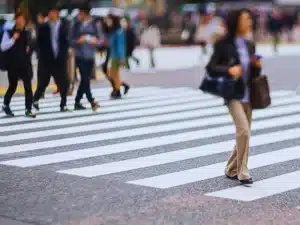Las Vegas, NV (March 31st, 2025) – A fatal shooting at the Aliante Casino and Hotel in North Las Vegas left one person dead. The shooting victim, 23-year-old Na’Onche Osborne, died of multiple gunshot wounds. The young man was the adopted son of former state senator, Pat Spearman.
Shortly after the fatal shooting, the armed suspect fled the crime scene. He then engaged in a chaotic crime spree involving crashes, car accidents, and a police chase through the Las Vegas Valley. At least two additional victims suffered injuries.
Las Vegas is known for its vibrant nightlife, world-class casinos, and luxury hotels. Millions of visitors flock to the city every year to enjoy its entertainment, dining, and gaming options. While most people expect a fun and safe experience, injuries can and do happen. One often-overlooked risk is harm caused by other patrons. Such appears to have been the case in the recent hotel death of the young man in North Las Vegas.
Premises Liability and Hotels’ Duty of Care in Nevada
Hotels and casinos owe a duty of care to their guests. Under Nevada law, property owners must maintain reasonably safe conditions for visitors. Included in this duty is the obligation to protect guests from foreseeable harm. If a hotel or casino fails to provide adequate security or disregards potential threats, they may be held liable for injuries caused by other patrons.
A key factor in establishing liability is whether the harm was foreseeable. Courts consider past incidents, security measures in place, and whether the business had knowledge of a potential danger. For example, if a casino has a history of violent altercations occurring on its property, but fails to increase security, it may be deemed negligent.
Negligent Security Claims
Negligent security is commonly a factor in hotel assault injury cases. A hotel or casino may be held responsible if they did not take reasonable steps to prevent harm. For example, common security failures include:
- Insufficient security personnel
- Poorly trained staff
- Lack of surveillance cameras or malfunctioning equipment
- Failure to remove or ban known troublemakers
- Inadequate lighting in areas prone to crime
If such failures occur, victims may have grounds to sue a casino after getting injured.
Dram Shop and Alcohol-Related Liability
Alcohol plays a significant role in many casino and hotel incidents resulting in injuries and death. Overconsumption can lead to aggressive or reckless behavior, increasing the risk of harm. With few exceptions, Nevada law does not impose dram shop liability on bars or casinos. As such, they are generally not responsible for injuries caused by an intoxicated patron. However, if a casino knowingly allows an intoxicated and violent person to remain on the premises, they may be found negligent.
Employer Responsibility for Employee Actions
Casinos must also ensure their employees do not contribute to violent incidents. If a security guard, bartender, or other staff member fails to intervene in a dangerous situation, or worse, exacerbates the conflict, the employer could be held liable. Businesses may be held accountable for their employees’ negligent or wrongful actions performed within the scope of their jobs.
Assaults and Physical Attacks
When a patron is assaulted in a casino or hotel, liability often hinges on whether the business took reasonable steps to prevent it. If an establishment has a history of fights or criminal activity but does little to enhance security, they could face legal repercussions. Additionally, if security personnel witness escalating tensions but fail to intervene, it may be viewed as evidence of negligence.
Civil Claims versus Criminal Charges
When it comes to assault-injury cases, it’s important to distinguish between civil and criminal liability. If another guest assaults someone, they may face criminal charges. However, a victim can still file a lawsuit against the hotel or casino for negligence. A criminal case does not preclude a civil claim. Rather, it may help strengthen a victim’s case in civil court.
In the case of the shooting death at the Aliante Casino and Hotel, a 19-year-old was arrested and faces criminal charges for the shooting. He has been charged with open murder and robbery. It’s unknown if he will also face charges relating to the carjackings and chase the 19-year-old led law enforcement on after the shooting.
Proving Liability in Court
For victims to successfully hold hotels or casinos liable, they must prove the elements of negligence. These elements include a duty of care, breach of duty, causation, and damages. To these ends, victims will need evidence to support;
- The business owed them a duty of care,
- The establishment failed to uphold that duty
- The failure directly caused an injury
- The victim suffered damages due to that injury
Evidence that may be used in such cases often includes surveillance footage, witness statements, security logs, and expert testimony.
Las Vegas hotels and casinos have a responsibility to provide a safe environment for their guests. When they fail to do so, victims may have legal options. Whether the injury stems from negligent security, alcohol-related incidents, or a failure to act, a Nevada personal injury and wrongful death lawyer can help assess the situation and determine the best course of action.
For 40 years, our attorneys at George Bochanis Injury Law Offices have helped Nevada residents and tourists alike to hold establishments accountable and recover damages. If you were injured in an assault or attack at a hotel or casino, contact our law offices today to discuss your case. 702-388-2005.




